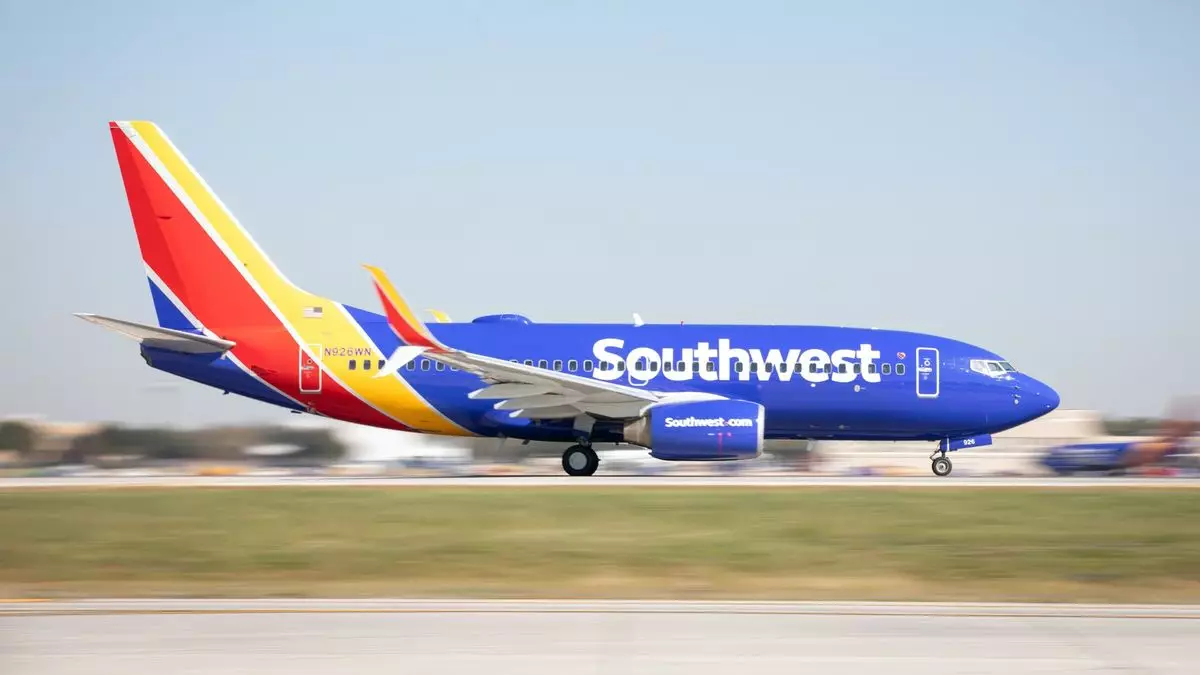In a landmark move, the Transportation and Justice Departments have launched a lawsuit against Southwest Airlines, citing chronic delays on specific flight routes over the spring and summer of 2022. This legal action marks a significant evolution in the regulatory environment for airlines as the government seeks to enforce accountability regarding operational reliability. Likewise, Frontier Airlines has also faced scrutiny, receiving a fine for similar issues. These developments shine a light on the challenges faced by both airlines and regulators in a post-pandemic aviation landscape where punctuality is becoming increasingly critical.
The lawsuit against Southwest, filed in the U.S. District Court in San Francisco, is a rare but growing tactic employed by the Department of Transportation (DOT) to combat frequent delays. It indicates a more aggressive approach from federal authorities, which aim to bolster consumer confidence in air travel. The DOT’s definition of “chronically delayed flights”—those that frequently arrive more than thirty minutes late—highlights a growing concern among travelers who are often left scrambling due to unreliable schedules. The penalties proposed can reach up to $37,377 per day per violation, showcasing the seriousness of these allegations.
Southwest Airlines’ Stance and Historical Context
In response to the lawsuit, Southwest Airlines expressed disappointment, emphasizing its long-standing record of operational reliability. According to the airline, it has successfully completed over 20 million flights without facing similar violations since the implementation of DOT’s Chronically Delayed Flight policy in 2009. The airline’s claim raises questions regarding the DOT’s criteria for identifying chronic delays and whether these two specific routes reflect a broader systemic issue or are isolated incidents. Southwest argues that its performance over the last 15 years significantly exceeds industry standards, even leading the sector in flight completion rates in 2024.
The airline industry as a whole has faced challenges in maintaining schedules due to a myriad of factors, including fluctuating demand and operational constraints. This complexity should be considered when evaluating the fairness of punitive measures against individual airlines. The discrepancy between the DOT’s assessment of Southwest’s flights and the airline’s self-reported performance underscores a potential divide between regulatory expectations and operational realities.
Frontier Airlines’ decision to accept a fine rather than contest it in court highlights varying strategies among airlines facing similar regulatory scrutiny. With a separate fine of $650,000 imposed due to chronic delays on specific routes, Frontier opted for a consent decree which significantly reduces its penalty provided it adheres to operational standards moving forward. This approach illustrates a pragmatic response aimed at minimizing potential legal fees and the uncertainty that litigation entails. Yet, the airline has contended that many delays stemmed from issues beyond its control, such as unpredictable weather patterns and airport construction.
The divergent paths taken by Southwest and Frontier illustrate the broader implications of the DOT’s enhanced scrutiny. While one airline fights to clear its name, the other seeks to mitigate financial penalties through compliance. These responses reflect varied risk tolerances and operational philosophies within the industry.
The ongoing legal battles signify a paradigm shift in how air travel is regulated and perceived. As consumers demand greater accountability from airlines, federal actions against chronic delays may become commonplace. The implications extend beyond mere penalties; they could reshape operational strategies, encourage improved schedule management, and ultimately foster a sense of accountability that may restore consumer confidence in air travel.
Amidst the backdrop of these changes, the transportation sector is poised for a renewed focus on punctuality and customer service. The DOT’s intensified scrutiny, especially under new leadership, is indicative of the government’s acknowledgment of aviation’s vital role in the economy and public life. As airlines navigate these regulatory waters, their decisions can significantly affect not only their reputations but also the public’s willingness to trust in air travel as a reliable mode of transportation.
As lawsuits and penalties shake up the airline industry, both airlines and regulators must collaborate to mitigate delays and foster a travel environment that prioritizes consumer rights while balancing operational realities.


Leave a Reply